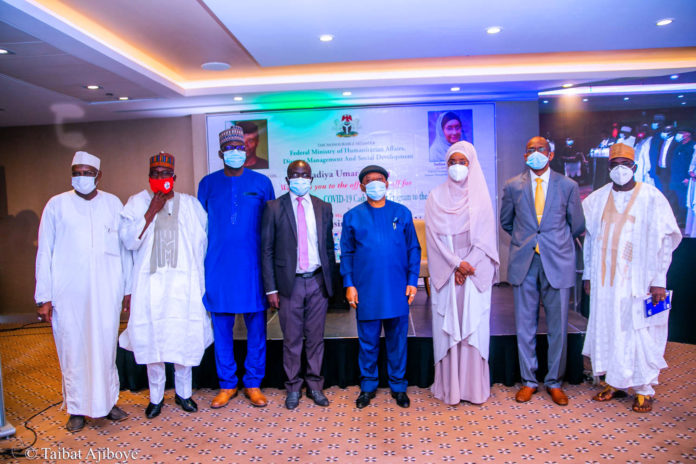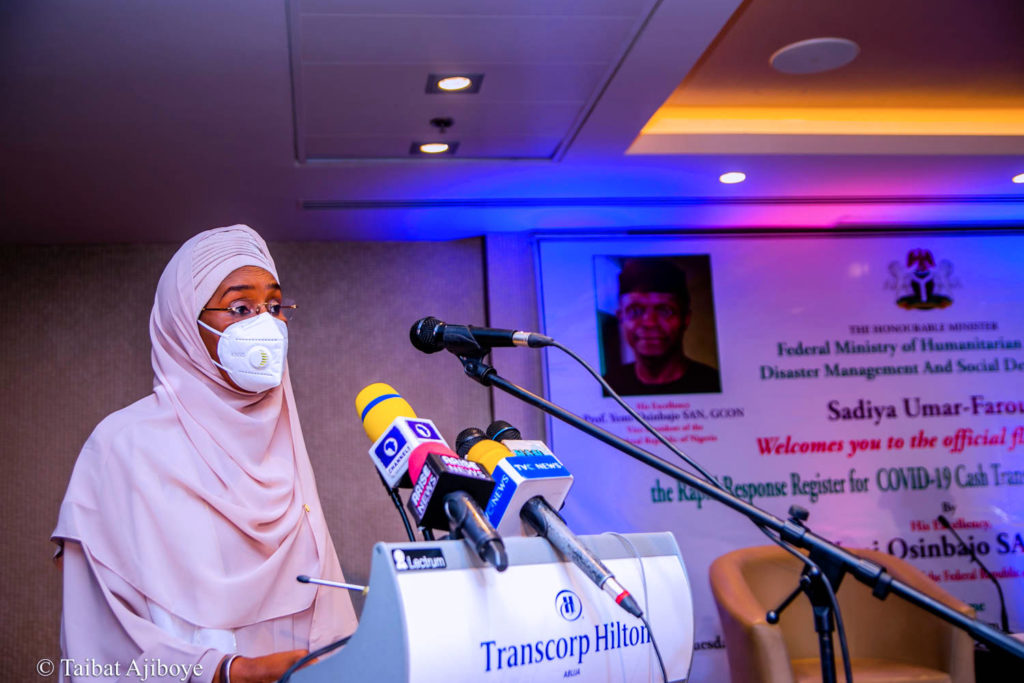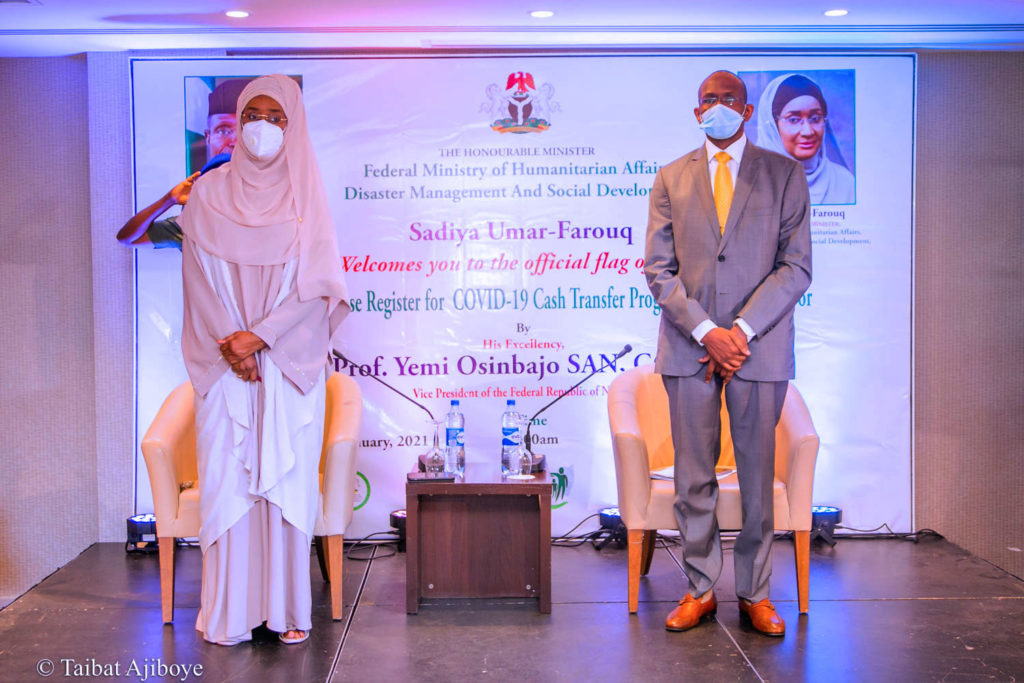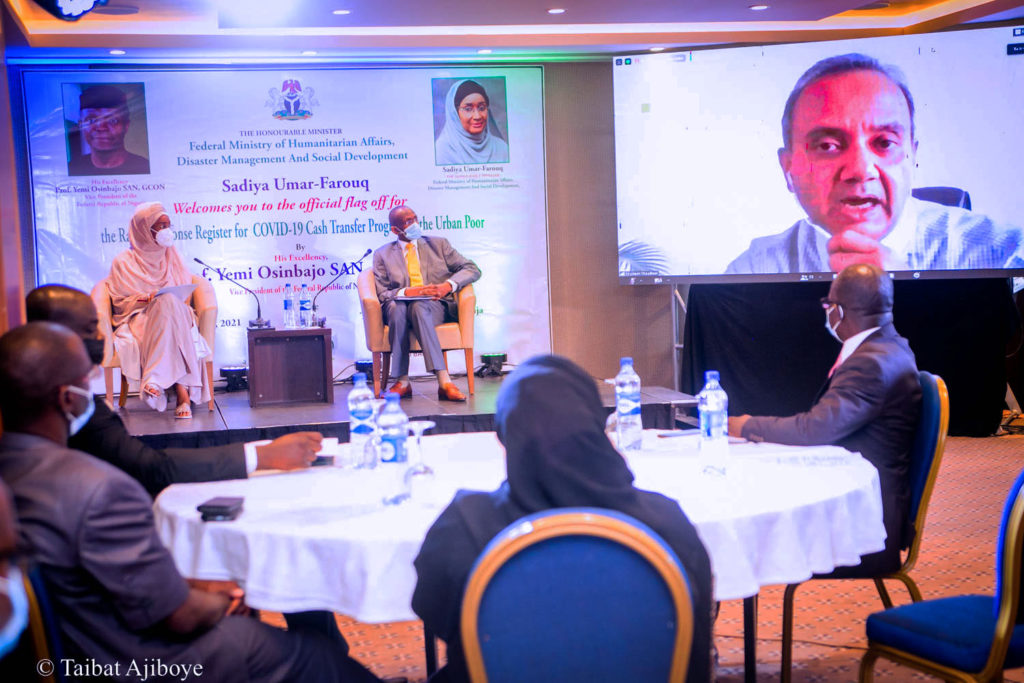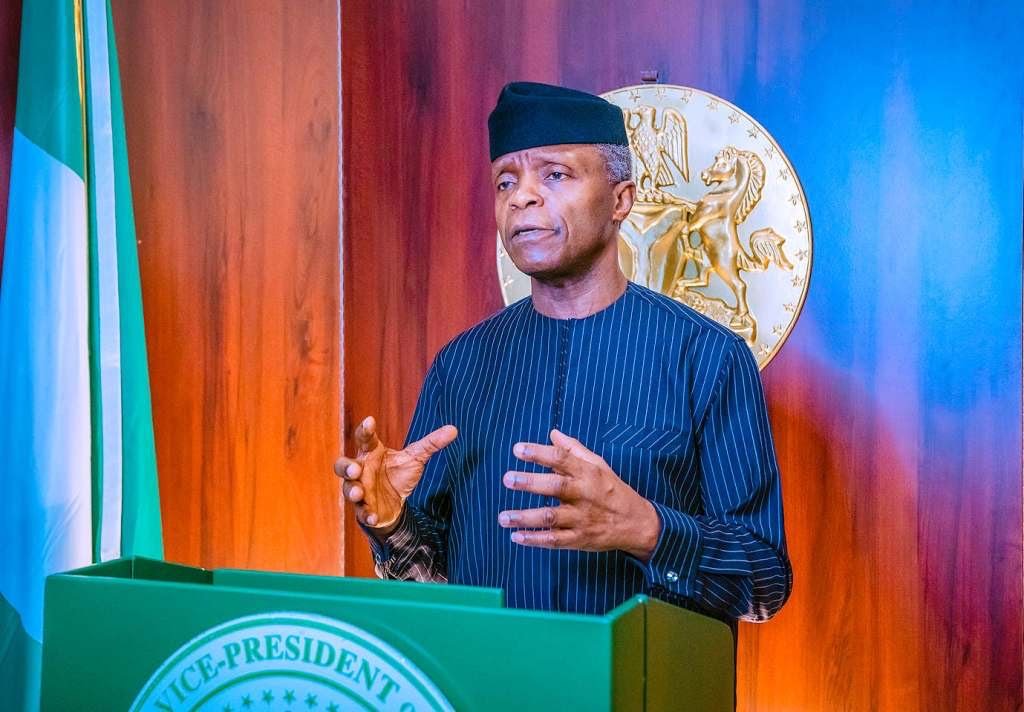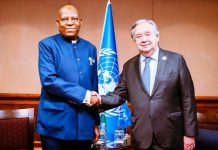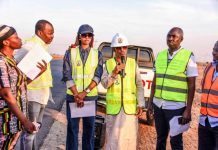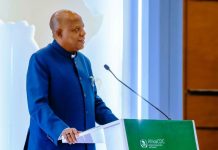Vice President Prof Yemi Osinbajo SAN GCON has commended the Minister of Humanitarian Affairs, Disaster Management and Social Development Sadiya Umar Farouq for her innovation in upgrading the Rapid Response Register (RRR) for the Covid-19 Cash Transfer Project.
Prof Osinbajo gave the commendation when he launched federal government’s emergency intervention database for the urban poor, a cushion for those further impoverished by the Covid -19 pandemic.
“I must commend the Hon. Minister of Humanitarian Affairs and her team not only for this innovative effort but for the discipline and resourcefulness that they have brought into the execution of the project to deliver it so promptly and so well.
“With the RRR which uses a wholly technology-based approach, we are primed to achieve an end-to-end digital foot-print in cash transfers for the urban poor which also helps us achieve our financial inclusion policy under the Enhancing Financial Innovation and Access programme (EFInA).
“The groundbreaking success of the RRR now emboldens us to achieve our aspiration of a social security programme for a minimum of twenty million Nigerians in the next two years. This will be the largest of its kind on the continent”.
The Vice President also hinted that federal government will seek funding for the intervention program as the country deserves a social security scheme that will not only alleviate poverty but also create wealth for millions of those waiting for the opportunity.
This he said is a testament to the commitment of the Federal government of Nigeria to create opportunities for millions of Nigerians to exit poverty with dignity and hope.
Earlier in her keynote address, Minister Sadiya Umar Farouq described the implementation of Humanitarian and Social Protection Programmes in Nigeria as a critical milestone in building a Shock Responsive Social Protection delivery system for the country.
“It is critical because it completes the full saturation of the urban and rural geographies in the registration of the poor and vulnerable people across Nigeria. As you may be aware, the National Social Registry, which is the repository for these databases has largely captured the rural poor households due to the very important prioritization process it uses by starting from the poorest communities, wards and Local Government Areas (LGAs). This was done to achieve equity and ensure that the poorest people are the first on the register”.
She said that the database was needed to develop the capacity for rapid response to any emergency including natural or man-made disasters such as crisis of banditry, insurgencies, communal crisis, emerging food crisis and displacement arising thereof, as well as climatic changes or similar pandemics.
The RRR is designed to rapidly identify, register and provide people who were not previously captured in the social register, with succor.
According to records, about 24.3 million poor and vulnerable individuals were identified at the end of 2020 and registered into the National Social Register. Each beneficiary will receive five thousand naira for a period of six months.
The RRR according to Iorwa Apera, the National Coordinator of the National Social Safety-Nets NASSCO, is designed using scientifically validated methods of satremote sensing technology and data analysis.
In attendance was the Minister of Labour and Employment Dr Chris Ngige, the Country Director World Bank Shulsham Chaudhun, the Permanent Secretary Bashir Nura Alkali, the Director Humanitarian Affairs Alhaji Ali Grema and other dignitaries.
NNEKA IKEM ANIBEZE
SA MEDIA
19-01-2021



